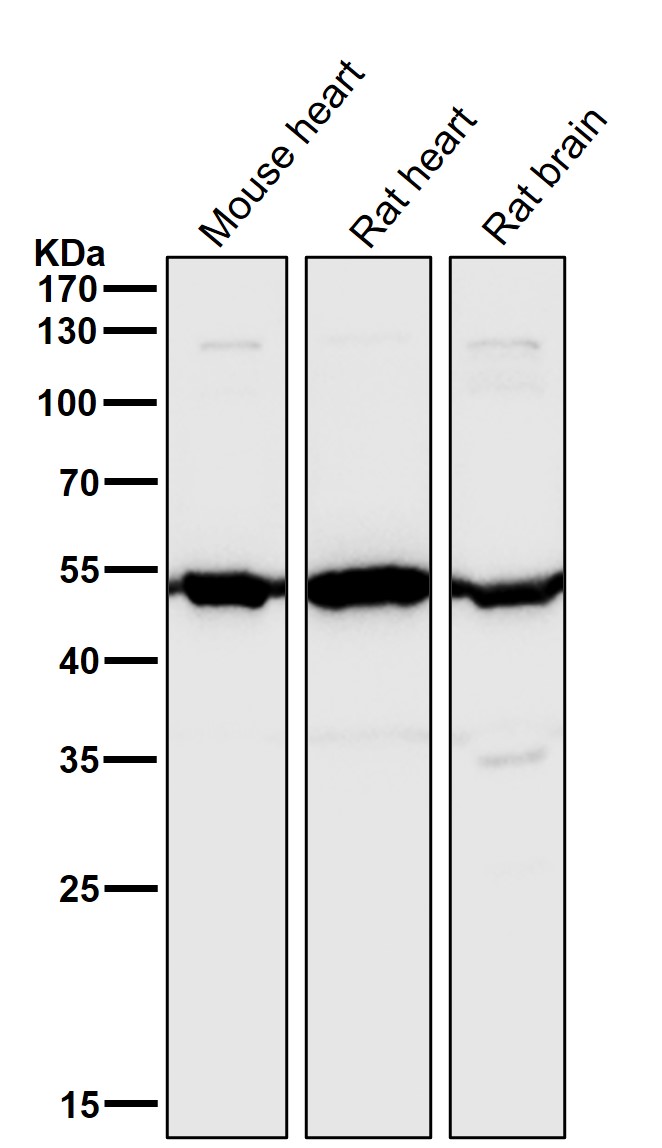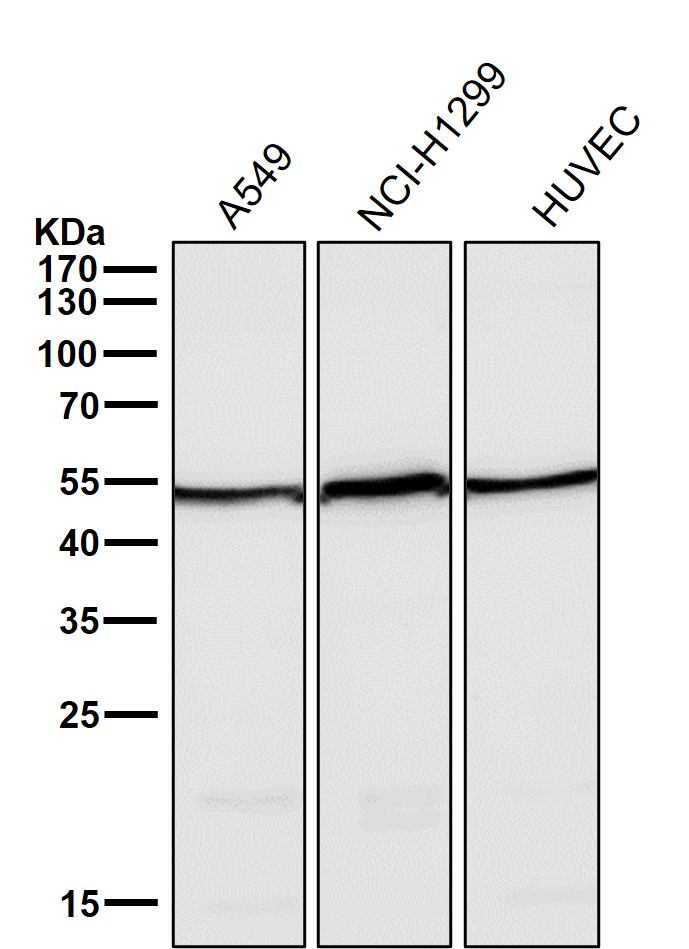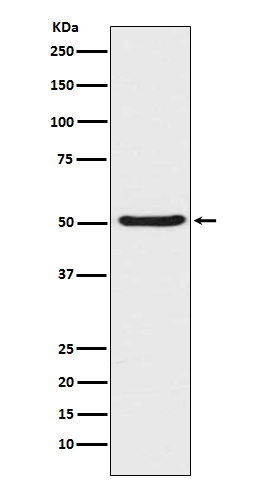


| WB | 咨询技术 | Human,Mouse,Rat |
| IF | 咨询技术 | Human,Mouse,Rat |
| IHC | 1/100-1/200 | Human,Mouse,Rat |
| ICC | 技术咨询 | Human,Mouse,Rat |
| FCM | 咨询技术 | Human,Mouse,Rat |
| Elisa | 咨询技术 | Human,Mouse,Rat |
| Aliases | AGPT 2; Agpt2; ANG2; Angiopoietin 2a; Angiopoietin 2B; Angiopoietin2; ANGPT 2; Angpt2; Tie2 ligand;;Angiopoietin 2 |
| WB Predicted band size | Calculated MW: 57 kDa ; Observed MW: 50 kDa |
| Host/Isotype | Rabbit IgG |
| Antibody Type | Primary antibody |
| Storage | Store at 4°C short term. Aliquot and store at -20°C long term. Avoid freeze/thaw cycles. |
| Species Reactivity | Human,Mouse,Rat |
| Immunogen | A synthesized peptide derived from human Angiopoietin 2 |
| Formulation | Purified antibody in PBS with 0.05% sodium azide,0.05% BSA and 50% glycerol. |
+ +
以下是关于Angiopoietin2(Ang2)抗体的3篇代表性文献摘要:
1. **"Angiopoietin-2 Blockade Promotes Vascular Normalization and Potentiates Anti-Tumor Immunity in Glioblastoma"**
- **作者**:Peterson, T.E. 等
- **摘要**:研究通过抑制Ang2抗体(如MEDI3617)发现,阻断Ang2可改善胶质母细胞瘤模型中的血管异常,促进T细胞浸润并增强免疫检查点抑制剂疗效,为联合免疫治疗提供依据。
2. **"Combined Inhibition of VEGF and Angiopoietin-2 Ameliorates Diabetic Retinopathy in Mice"**
- **作者**:Campochiaro, P.A. 等
- **摘要**:该文献表明,同时靶向VEGF和Ang2的双特异性抗体(如Faricimab)在糖尿病视网膜病变模型中可更有效减少血管渗漏和新生血管形成,优于单一靶点治疗。
3. **"Anti-Angiopoietin-2 Antibody Attenuates Metastatic Spread in Triple-Negative Breast Cancer"**
- **作者**:Mazzieri, R. 等
- **摘要**:实验证明Ang2抗体(LC06)通过抑制肿瘤血管生成和调节肿瘤相关巨噬细胞,显著降低三阴性乳腺癌小鼠模型的肺转移,提示其作为辅助治疗的潜力。
(注:以上文献为示例,实际引用需核实具体来源及准确性。)
Angiopoietin-2 (Ang2), a member of the angiopoietin family, is a glycoprotein critical in regulating vascular development and inflammation. It binds to the Tie2 receptor, primarily expressed on endothelial cells, but unlike its stabilizing counterpart Angiopoietin-1 (Ang1), Ang2 acts as a context-dependent agonist/antagonist. Under pathological conditions like hypoxia or inflammation, Ang2 is upregulated, disrupting vascular integrity by competing with Ang1 for Tie2 binding. This promotes endothelial activation, vascular leakage, and pathological angiogenesis, making it a key player in diseases such as cancer, diabetic retinopathy, and inflammatory disorders.
Ang2-targeting antibodies are designed to inhibit its detrimental effects. These antibodies block Ang2/Tie2 signaling, thereby stabilizing vessels, reducing inflammation, and suppressing tumor growth or abnormal angiogenesis. Preclinical studies highlight their potential in combination therapies, particularly with VEGF inhibitors, to overcome resistance in cancers or retinal diseases. For example, faricimab, a bispecific antibody targeting both Ang2 and VEGF-A, has shown efficacy in clinical trials for age-related macular degeneration and diabetic macular edema.
Despite promise, challenges remain, including understanding tissue-specific Ang2 roles and managing off-target effects. Research continues to optimize antibody design (e.g., bispecific formats) and identify biomarkers for patient stratification. Ang2 antibodies thus represent a versatile therapeutic avenue, bridging vascular biology and immune modulation in complex diseases.
×